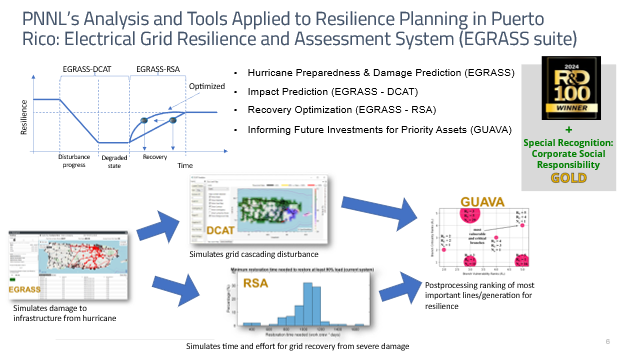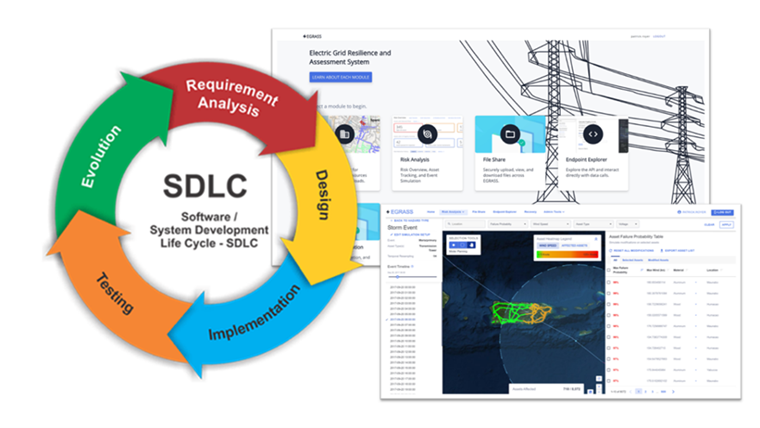- Explore our Research
- Explore Technical Assistance
- Best Practices
- Tools
- Resources
- Get Connected
Electrical Grid Resilience and Assessment System (EGRASS)
The Electrical Grid Resilience and Assessment System (EGRASS) is a cloud-based, web-accessible platform developed by PNNL that helps utilities and emergency responders simulate the impact of natural disasters—like hurricanes, floods, wildfires, and earthquakes—on power grids, assess component failure risks, prioritize critical infrastructure protections, and optimize recovery strategies in real time.
Key features include:

- Seven-day ahead forecast module to provide the real-time information with a forecast window to show any potential storms that would probably impact the energy infrastructure in the near term.
- Visualizing storm paths and estimating failure probabilities for grid components (towers, substations, lines)
- Offering end-to-end resilience analysis—from disaster impact to restoration timelines—via integrated modules (e.g., DCAT for cascading failures, RSA for recovery optimization, and GUAVA for assets which should be prioritized for future investments)
- Providing intuitive interfaces designed collaboratively with real-world users like PR’s LUMA Energy and Hawaiian Electric
EGRASS earned a prestigious 2024 R&D 100 Award and a gold Corporate Social Responsibility medal for its support in Puerto Rico’s recovery and shift toward a more resilient, renewable-powered grid. It’s now being rolled out to other regions prone to extreme weather events.
Partners/Use Cases
Puerto Rico (LUMA) – EGRASS is currently being used to support the hurricane preparedness and damage prediction during LUMA Energy, the local utility in Puerto Rico, Emergency Operations Centre (LEOC) function activation.
Other partners include:
Links
